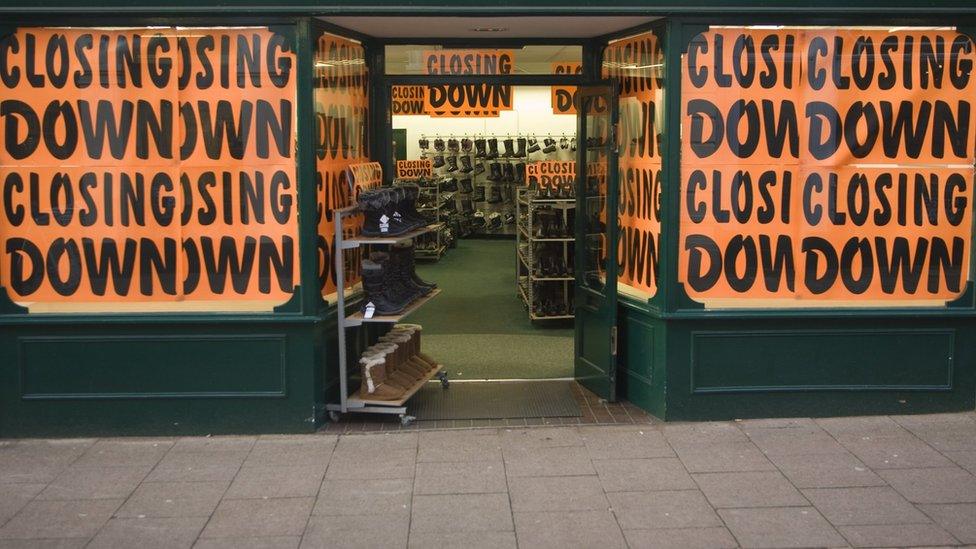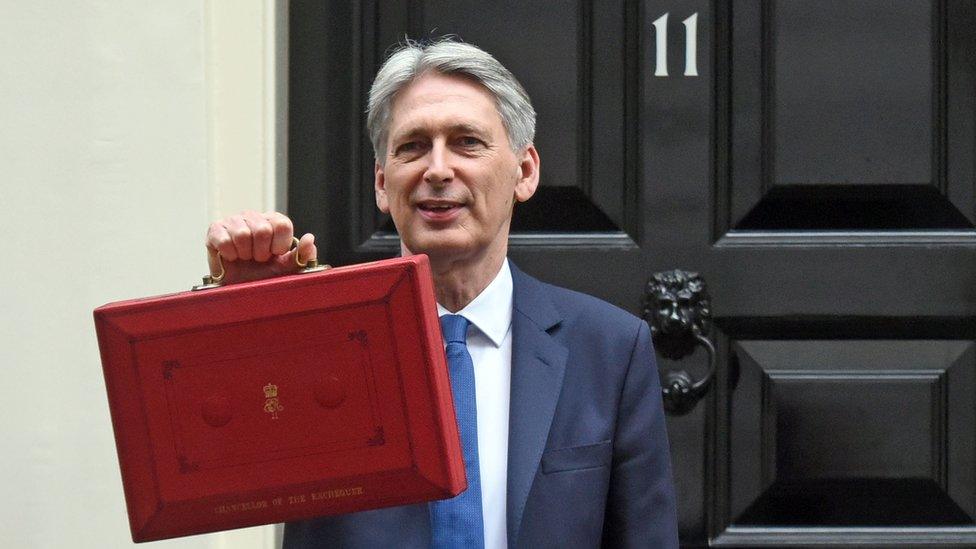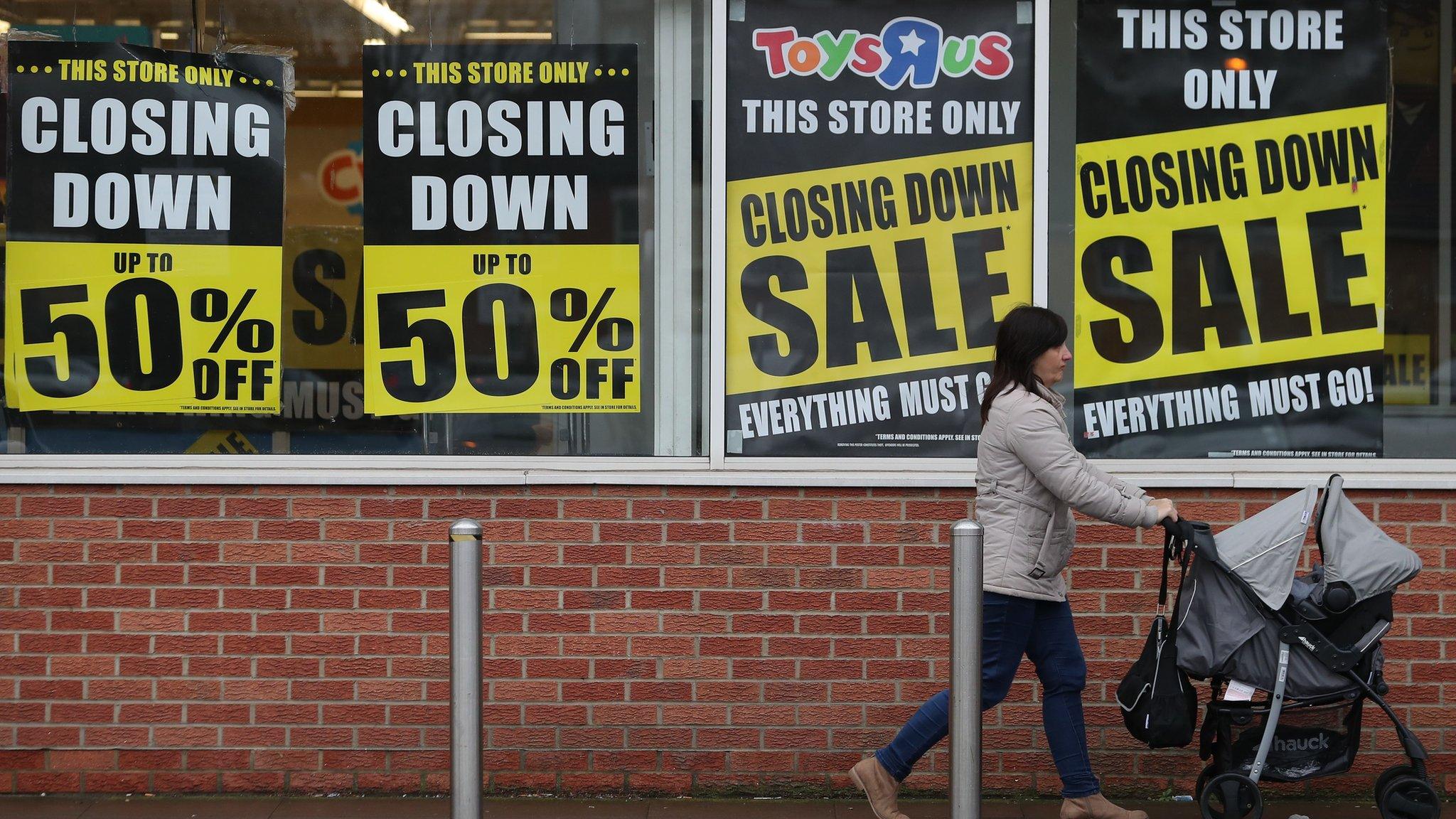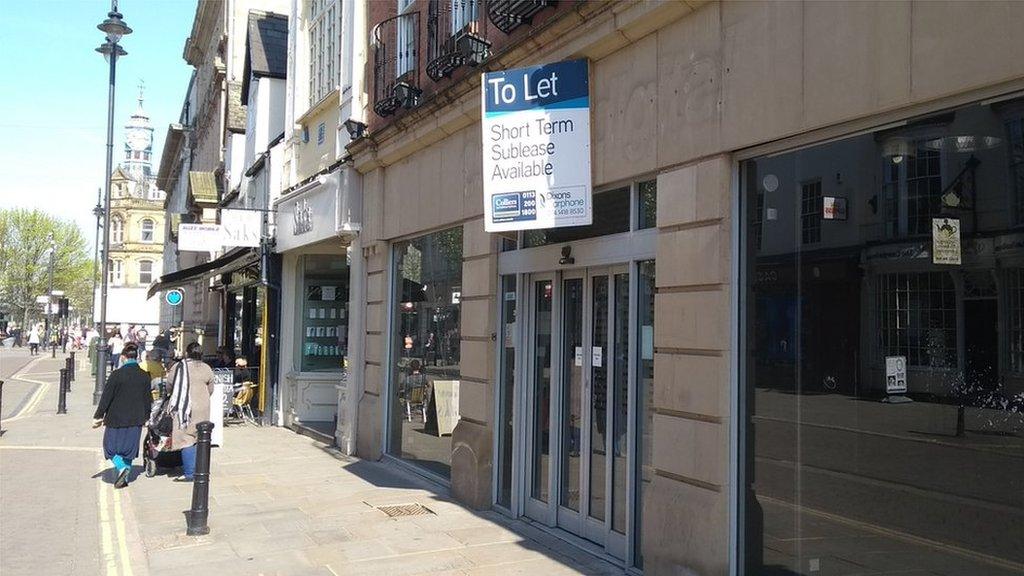Chancellor plans High Street rates relief
- Published

Former High Street shops could be turned into housing under the chancellor's plan
Chancellor Philip Hammond is set to announce a £1.5bn boost to small High Street UK retailers in the Budget.
The financial package will include £900m in business rates relief for nearly 500,000 small businesses and a pot of £650m to rejuvenate high streets and their transport links.
Planning rules will also be eased to allow home-building on empty sites.
In one example, a pub in Sheffield with a rateable value of £37,750 will save £6,178 in business rates next year.
A newsagent in Birmingham with a rateable value of £14,250 will save £1,749.
Business groups welcomed the plans but Labour said the rates relief did not go far enough.
The Treasury said its new business rates relief, targeted at small retailers, could knock a third off their bills and that 90% of them would benefit from the proposals.
To qualify as a small retailer, business premises must have a rateable value of £51,000 or less.
While the funding is for the whole of the UK, it will be up to the individual nations' parliaments to decide exactly how to use the cash.

What are business rates?
A tax on non-domestic properties, like shops and pubs
Based on a property's "rateable value", which is linked to rental value
Separate to corporation tax, which is linked to profits

Mr Hammond will set out the government's future spending plans on Monday afternoon.
The British Chambers of Commerce said the pledge to reduce rates bills for small retailers was welcome after an "alarming number" of High Street firms closed this year.
Hannah Essex, the business lobby group's co-executive director of policy and campaigns, said: "While there are long-term structural changes taking place, including changes to consumer habits, the tipping point for many of these firms has been the unnecessarily large burden that business rates place on them.
"Therefore, this short-term reduction in rates will be very welcome news to those on the High Street who require urgent respite," Ms Essex added.

Chancellor Philip Hammond will deliver his next Budget on Monday afternoon
The Treasury estimated 496,000 small retailers would benefit from immediate business rates relief.
Rebecca Long-Bailey MP, Labour's shadow business secretary said of the plan: "Small businesses need support, but the retail sector as a whole is struggling.
"100,000 retail jobs have been lost in the last three years yet not a single M&S, Debenhams or House or Fraser - anchor stores bringing in footfall and benefiting all traders - would have been saved by today's announcement."
Ms Long-Bailey said the chancellor's plan did nothing to address the underlying imbalance between brick-and-mortar retailers and online sellers.
Homes on the High Street
The chancellor's £650m injection, to be introduced over the next four years and called the Future High Streets Fund, will allow towns and cities to "redevelop under-used retail space into homes and offices, providing help to restore High Street properties and put historic buildings back into use".
Helen Dickinson, head of the British Retail Consortium said: "Retailers welcome the measures announced by the Treasury to invest new funding to boost high streets and town centres and facilitate re-invention of many to modern and diverse destinations."

Analysis
By Joe Miller, BBC business correspondent
It's been a bruising year for Britain's retailers - and small business owners have been quick to blame the steep rises in business rates that followed the latest revaluation of the tax in 2017.
Chief executives of large firms such as Tesco have also been critical, saying they are forced to pay more than online competitors such as Amazon, which are often based in warehouses outside of city centres, where rents are cheaper.
The chancellor's response will be an immediate reduction of the levy for small firms in England, as well as a commitment of £650m to local authorities, which they can use to improve transport facilities and restore dilapidated or historic buildings in city and town centres.
Under the Barnet formula, some of the £1.5bn set aside to help High Streets will go to Scotland, Wales and Northern Ireland, but business rates are devolved, and it will be up to individual nations' parliaments to decide exactly how to spend the money.
Nonetheless, business groups have cautiously welcomed the announcement. But the British Retail Consortium is not the only organisation to warn that with the majority of Britain's three million retail workers employed in bigger firms - including troubled chains like House of Fraser - wholesale reform of the tax system is needed.
As yet - there is no indication that the Treasury is considering a longer term fix.
- Published1 March 2018

- Published24 April 2018
